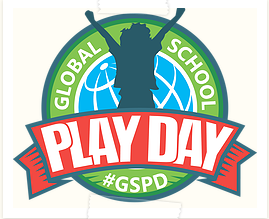Dear School Administrator,
I am writing to share with you some exciting news about a learning methodology that promotes physical health, emotional wellbeing, creativity, empathy for others, and dynamic, innovative thinking in our students. Even more incredible is the fact that it costs nothing to implement, requires no time off for teacher professional development, and is loved by children (and most adults) worldwide. This methodology is at the cutting edge of 21st Century educational practice, yet, sadly, it is underutilized in today’s classrooms. The methodology in question?
Play.
Unscripted, unstructured play. Play as old as sentient life itself. Play as the intrinsic vehicle by which every child interacts with, and makes meaning of, the world around them.
I would like to invite you to join a worldwide movement to help “reintroduce” this fading art into our school environments: the inaugural Global School Play Day on February 4! Our communities look to their school leaders to not only manage the daily challenges of running complex organizations, but also to be visionaries, willing to take risks to push the boundaries of what we think is possible. Our communities expect us to lead, and leading means showing our willingness to go first!
I would like to share with you a recent conversation I had with Lower Alloways Creek (NJ) Superintendent Jay Eitner about why he was one of the first educators to join Global School Play Day. People pay as much attention to what leaders say as to how they say it; I think you will agree that Mr. Eitner’s enthusiasm is palpable and infectious!
It is very likely that you work in a school district that has identified some or most of the following skills and dispositions as key learning outcomes for your students: Creativity, Empathy, Critical Thinking, Effective Communication, Respect for Diverse Viewpoints, Collaboration. You have likely worked with your teaching staff on implementing instructional practices that support the development of these critical 21st Century attributes. Project based learning, meaningful technology integration, and standards-based assessment practices are all important components to ensuring success for all learners.
But these methodologies and mission statements are not enough to help all students experience a memorable, personally relevant journey through our educational system. Somewhere along the way we started thinking about play as something contrary to work, rather than something complementary. We started thinking about play as a reward, a “time-out” from real learning, something that happens only at recess or in parks. But to see children at play is to witness genuine engagement, creative expression, and experimentation with new ideas. Why can’t we tap into that deep well of energy to infuse new life and energy into our campuses? Why can’t we start tapping into unstructured play as an engine for innovation, autonomy, and – just as critical –joy?
Play isn’t only beneficial for children; how often do we hear staff members wishing they had more time to simply enjoy each other’s company, connect as colleagues and create and share new ideas? What if one of the most effective ways to develop an open, trusting staff culture is through play? This is a challenging notion in education – the traditions we inherit make play seem counter to professionalism. Global School Play Day challenges that notion and invites YOU to reconsider its deep power as an essential – not frivolous – learning methodology.
Albert Einstein said it well: “Play is the highest form of research.” We hope you will share this global movement with your staff as a celebration of learning – for children and adults!
Yours in leadership,
A free play aficionado (and fellow school administrator)
Eric Saibel
